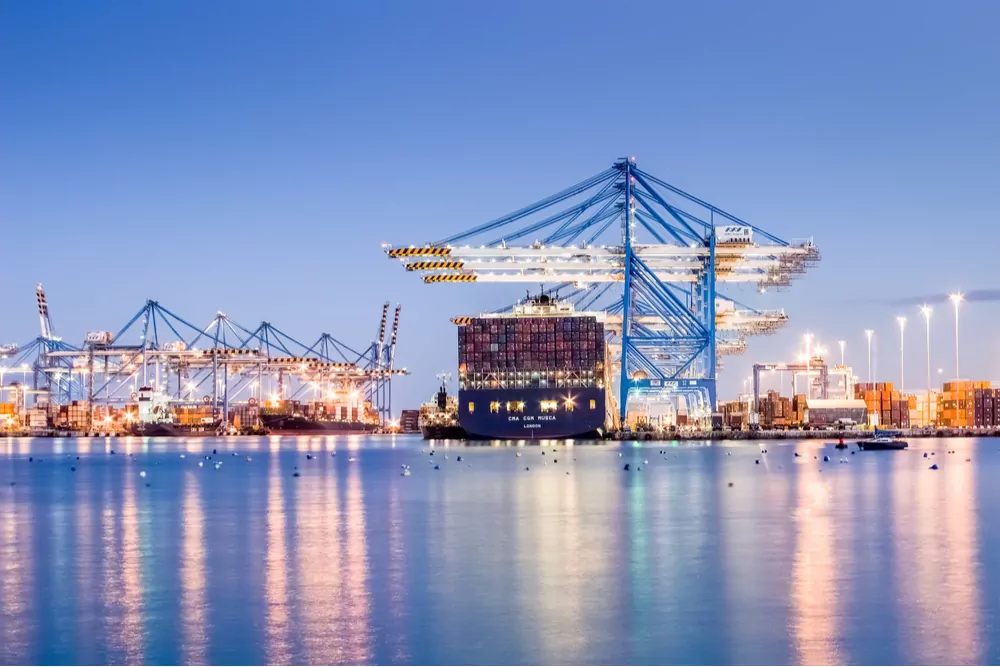
Forced labour in supply chains: Joint Committee on Human Rights publishes its report


Following the launch of its inquiry into forced labour in global supply chains in January this year, the Joint Committee on Human Rights – which comprises 12 members from both the House of Commons and House of Lords – published its findings last week in a report (the "Report").
A far cry from what was once considered the world-leading Modern Slavery Act 2015 ("MSA"), the Report makes unequivocally clear that the UK’s "patchwork" domestic legal framework – comprising the MSA and sector specific legislation – is inadequate to address forced labour and abuses in supply chains. To find out more about the MSA and current UK framework please read our previous article. The Joint Committee has made several recommendations for the Government to consider and called for new legislation to be introduced within the next 12 months.
Forced labour in the UK – the current state of play
The Report has found that the UK currently imports a significant volume of goods (approximately US$26 billion worth) from five sectors where "high levels" of forced labour are found, namely:
- electronics
- garments
- seafood
- timber
- textiles
To provide further context for example, one in five garments made from cotton can be linked to forced labour in the Xinjiang region of China. In relation to seafood, fish imported to the UK from China (which totalled £307 million in 2023) can be linked to forced labour involving North Korean workers confined to Chinese fishing vessels for up to a decade.
Comparatively, the UK's major trading partners, the EU and US have taken steps to address forced labour in their supply chains. There are now enhanced due diligence (dd) obligations in the EU and an import ban in the US for goods with a footprint in the Xinjiang region of China.
The Report found the MSA does not motivate companies to address forced labour in their supply chains. The Government should:
- Strengthen the reporting duty under the MSA by establishing effective accountability mechanisms for non-compliance.
- Remove S.54(4)(b) of the MSA which allows companies to comply in reporting “no action” has been taken.
Voluntary implementation of DD has not effectively tackled forced labour. The Government has therefore been advised to:
- Utilise the newly announced Supply Chain Centre – which will be established within the Department for Business and Trade – to facilitate human rights DD by giving a single point of access for verified information, guidance and resources.
- Introduce mandatory human rights DD throughout the supply chain for business trading in the UK.
- Consider the outcome of the EU’s Corporate Sustainability Due Diligence, which is still under review, and consult with organisation so those which undertake business in the EU and UK are not placed under conflicting regulatory burdens.
- Scale requirements for small and medium-sized enterprises to support a proportionate approach to manage specific risks those businesses face relating to forced labour.
As noted above, key comparator markets have introduced import bans. The UK’s lack of equivalent legislation increases the risk of it becoming a “dumping ground” for goods that cannot be sold elsewhere. Consequently, the Government should:
- Introduce an import ban on those goods produced through forced labour. In doing so, it will be necessary to establish: (i) how the risks in supply chains are identified; (ii) who is responsible for identifying forced labour risks; (iii) who is responsible for confiscating goods; and (iv) what processes will follow once confiscated.
- Make clear that no company which uses or allows state-imposed forced labour can import goods into the UK.
- Include a rebuttable presumption that goods linked to regions whereby the Government considers state-imposed forced labour until proven otherwise.
The Government can turn to the US for guidance, where an import ban has been introduced on all goods with a footprint in the Xinjiang region of China. The US has also implemented a “rebuttable presumption” for goods deriving from Xinjiang.
The Joint Committee has recommended the adoption of an explicit policy that introduces provisions addressing forced labour in future trade agreements. In doing so, the Government can look to the EU, which has taken a systemic approach by including human rights clauses in its free trade agreements.
The Report has found that it is too difficult for individual survivors to access the UK legal system when they have been subject to forced labour abroad within the supply chains of UK companies. The Joint Committee has recommended – as the Joint Committee of Human Rights did in 2017 – the introduction of a civil cause of action of failure to prevent forced labour. Under this proposal, the burden would be placed on the business to prove that they have adequate procedures in place to prevent such abuses.
Similar obligations exist in the Bribery Act 2010 and are now being extended through the new corporate criminal offence of “failure to prevent fraud”, which comes into force on 1 September 2025, although these result in criminal rather than civil liability.
Our thoughts
The Government has two months to respond to the Report, with the Joint Committee calling for the introduction of new legislation within one year. While the exact form of this legislation remains unclear - despite some initial steps being taken around transparency in supply chains - there are actions businesses can take now to prepare. Organisations should consider undertaking due diligence exercises and updating internal policies to align with the anticipated duties.
The regulatory landscape is constantly evolving. Beyond legal compliance, both investors and consumers expect businesses to act responsibly - and failure to do so can significantly damage a company’s reputation. Our regulatory lawyers are here to support and advise you on what the Report means for your business, and how you can ensure that forced labour is not present in your supply chain. Please contact one of the team below.













